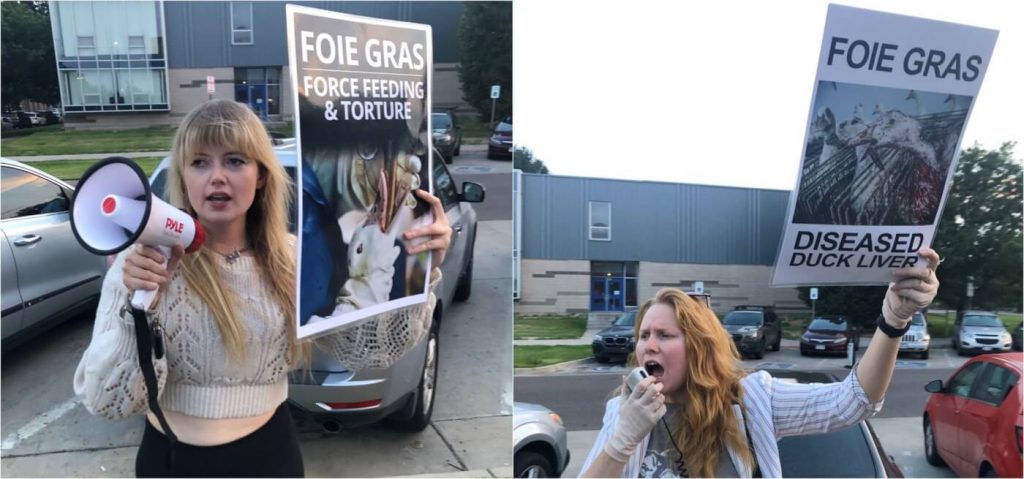After hearing from PETA and other animal rights organizations that humans force-feed ducks used for foie gras until their livers bloat and then slaughter them, Texas-based restaurant group Hai Hospitality has removed foie gras from the menu at all its Asian fusion restaurants across the country!
The victory follows heavy campaigning and multiple protests organized by Animal Activism Mentorship and Austin Animal Advocates—including a recent demonstration outside the home of a Hai Hospitality investor—and more than 40,000 e-mails from PETA members and supporters.
Hai Hospitality made the right call to no longer sell the diseased livers of birds who were painfully force-fed.
PETA asks other eateries that still offer this “delicacy of despair” to follow suit and encourages diners to speak up for ducks if they see foie gras on a menu anywhere.
The Cruelty of Foie Gras
During foie gras production, workers pump several pounds of fat and grain into birds’ stomachs every day through tubes shoved down their throats, causing their livers to swell to up to 10 times their normal size. Investigations into foie gras farms in the U.S. and Europe have revealed sick, dying, and dead animals, some with holes in their necks from force-feeding injuries.
The farm owners keep the birds in crowded pens suspended over a mixture of the waste of thousands of other birds who are crammed in the massive shed with them. Unable to bathe or groom themselves, they become coated with excrement mixed with the oils that would normally protect their feathers from water.
Facts About Ducks and Geese
Geese are very loyal. They mate for life and are protective of their partners and offspring. They’ll often refuse to leave the side of a sick or an injured partner or chick, even if winter is approaching and the other geese in the group are flying south. When a goose’s partner dies, the surviving mate will mourn in seclusion—and some geese spend the rest of their lives as widows or widowers, refusing to partner again.
Geese enjoy preening their feathers, foraging for food in the grass, and collecting twigs, bark, and leaves to make “home improvements” to their nests. They lay eggs once a year in the spring, and females incubate them for 30 days while their partner guards their well-concealed homes.
Ducks are outgoing, social animals who feel most at ease when they’re in large groups, which are called “paddlings” when on water. They spend their days looking for food in the grass or in shallow water, and they sleep with their paddling-mates at night. They’re meticulously clean animals who keep their nests free of waste and debris, and they enjoy preening and flaunting their beautiful plumage for potential partners. In nature, they live for up to 10 years.
They use vocalizations and body language to communicate. It’s reported that ducks even have regional accents, just as humans do. Ducks who live in cities have more of a “shouting” quack so that other birds can hear them above the hustle and bustle, while country ducks have softer voices.
Foie gras production is outlawed in more than a dozen countries as well as in California, and numerous companies—including Costco, IKEA, Sam’s Club, Target, and Whole Foods—refuse to sell it.
If you see foie gras on a menu, speak to the manager and urge them to remove it.
Need assistance or materials?
The post Victory! Hai Hospitality Bans Foie Gras After Push From Duck Defenders appeared first on PETA.

